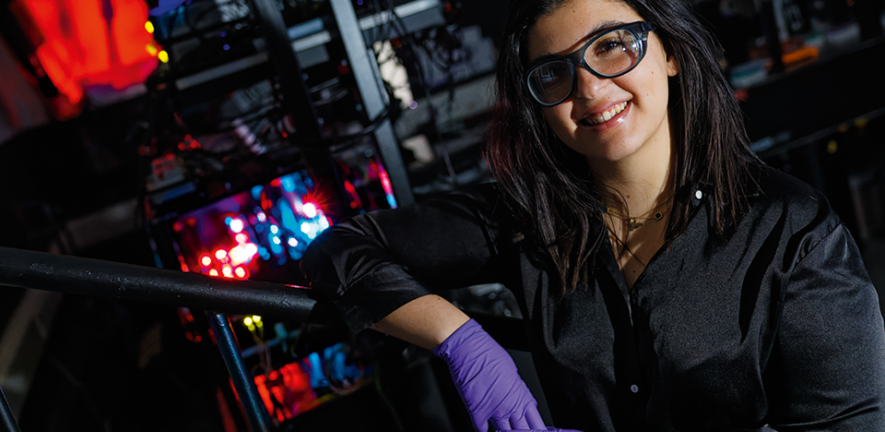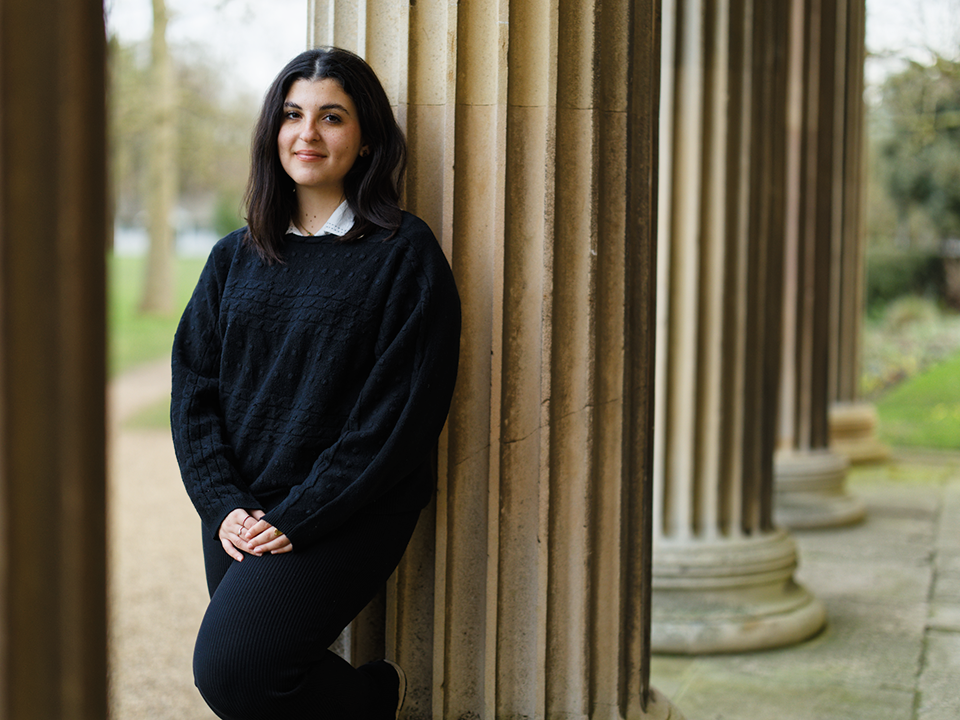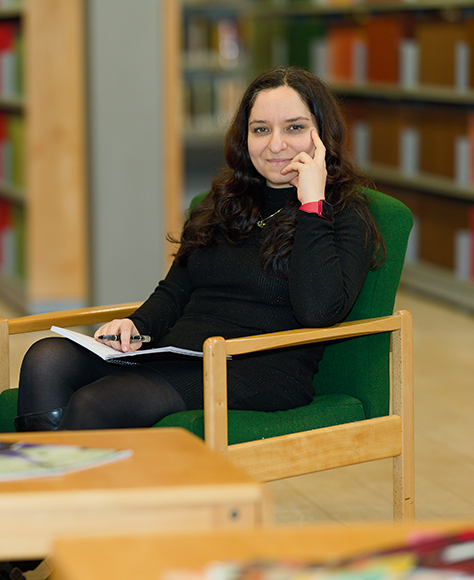
Beyond their scientific work, they share their experiences as expatriate researchers, reflecting on the challenges and opportunities of working abroad. Their conversation offers insights into both their cutting-edge discoveries and the personal journeys that brought them here.
Where do you come from?
I’m originally from Sicily and I moved to Cambridge in 2018 to pursue my A-levels and have continued my academic journey in the UK ever since.
I earned my BSc in Biochemistry at King’s College London before returning to Cambridge to join the Engineering and Physical Sciences Research Council Centre for Doctoral Training (CDT) in Sensor Technologies for a Healthy and Sustainable Future.
This four-year programme, which combines an MRes and a PhD, has allowed me to explore a wide range
of scientific disciplines, including chemistry, physics and engineering.
What work do you do in the Lee Lab?
For my PhD, I am specialising in single-molecule fluorescence microscopy, funded by AstraZeneca to study the behaviour of novel immunotherapeutic drugs at a molecular level and drive more effective drug development.
My research sits at the intersection of biochemistry, biotechnology and biophysics. I find it incredibly exciting to contribute to work with such promising real-world applications.

Livia at Downing College, taken by Nathan Pitt ©University of Cambridge.
What makes your job here in Cambridge unique?
What makes my work particularly unique is its collaborative nature. Being part of a Research Group with strong ties to both academia and industry allows me to combine cutting-edge research with real-world application to drive impactful solutions.
As Prof. Lee always says, our Group’s core mission is to develop new methods to address fundamental biological problems. This vision continues to inspire me, driving me to seek creative and impactful solutions in my research.
How would you compare Cambridge to your hometown?
I come from Ragusa, a small town in the south-eastern part of Sicily, known for its stunning Baroque architecture and vibrant atmosphere. In contrast, Cambridge is a highly international city with a strong academic presence and a rich intellectual history.
The biggest difference for me is the pace of life. In Ragusa, time seems to slow down and the lifestyle is more relaxed. Cambridge, on the other hand, moves at a much faster rhythm, especially in academic circles, where the intellectual energy is constant and dynamic.
Cambridge’s reputation for academic excellence is well deserved, with a long history of ground-breaking discoveries that continue to shape the world. This legacy not only inspires future innovations but also creates a unique intellectual energy that pushes you to think critically and creatively.
Beyond academics, Cambridge has a rich cultural scene. No matter your interests, there’s always something happening – whether it’s lectures, concerts, theatre, or festivals – bringing people together in a shared passion for learning and exploration. The combination of academic rigour and cultural vibrancy makes Cambridge an incredibly inspiring place to grow, both personally and professionally.
What memory from your time in Cambridge will stay with you as you move forward?
The formal dinner after my matriculation at Downing College will always hold a special place in my heart. That evening marked the official start of my journey at Cambridge, a moment when I truly felt part of this
historic community.
The atmosphere was magical – the glow of candlelight, the grandeur of the hall and the sea of black gowns all came together to create an unforgettable memory, one that I will carry with me wherever I go.
Dr Leila Nahidiazar
The interviewer for this article, Leila, worked in the Lee Lab. She researched Parkinson’s disease using cutting edge knowledge and newly emerging microscopy methods. Originally from Iran, she lived in the Netherlands before moving to Cambridge. A writer and poet in her free time, this is her last column for Chem@Cam. Her bilingual poetry book in Dutch and Persian, “het ziellicht van een vrouw”(the soul-light of a woman), was published in March earlier this year. We wish her the best of luck on her next adventure. |
This article was originally published in Chem@Cam magazine Issue 70.


